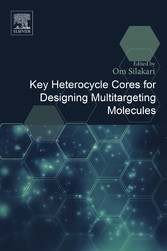Suche
Lesesoftware
Info / Kontakt
Key Heterocycle Cores for Designing Multitargeting Molecules
von: Om Silakari
Elsevier Reference Monographs, 2018
ISBN: 9780081021057 , 436 Seiten
Format: ePUB, PDF
Kopierschutz: DRM




Preis: 147,00 EUR
eBook anfordern 





